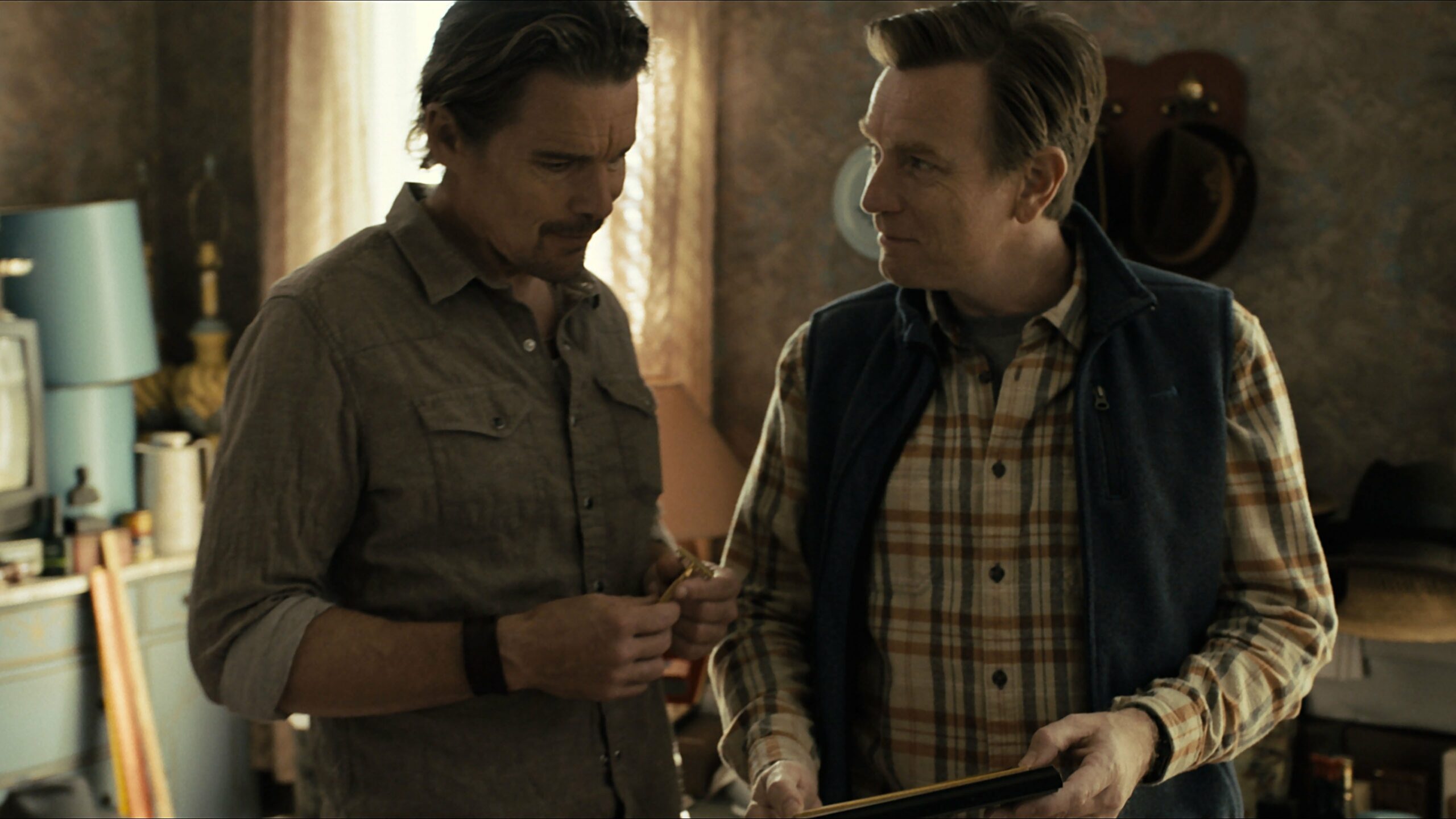
Late the other night when I turned on She’s All That for a hit of nostalgia, I didn’t anticipate it sending me down a rabbit trail of thoughts about the stories we tell and retell and why we keep retelling them.
She’s All That is an adaptation of George Bernard Shaw’s 1913 play Pygmalion. Pygmalion itself is a reworking of an Ancient Greek myth about a sculptor who falls in love with one of his sculptures, which comes to life under the blessing of Aphrodite. That story appears in Ovid’s Metamorphoses. It has been a source of inspiration for artists of all disciplines over the past two thousand years.
We tell this story again and again and again. Do we learn from it? Does it inspire us to make wiser choices? Maybe that’s not the point of art. Maybe it’s not what we take from the story that matters. Maybe it’s the telling itself that does us good. Pygmalion sculpts his statue because he desires a perfect woman. His desire is honored by Aphrodite, and she answers his prayer for a woman as perfect as his statue by giving his statue life. Maybe we tell this story over and over because it expresses our desire for perfection and to be perfect. It promises that desire will not be in vain. It’s not about any moral it imparts. It’s about what it makes us feel and hope.
What does any of this have to do with the actual subject of this review, Rodrigo Garcia’s new film Raymond & Ray? Raymond & Ray is a movie about two half-brothers who travel together to bury their father from whom they were both long estranged. Raymond and Ray are played by Ewan McGregor and Ethan Hawke, respectively. McGregor was in a film of Garcia’s that was of special interest to us – Last Days in the Desert, in which McGregor played Jesus and wrestled with what it meant to be God’s son at the end of his time fasting in the desert after his baptism. So we have a theme in Garcia’s work – contentious relationships between parents and children, specifically between fathers and sons. It’s a theme Garcia has explored in his other film and television work as well.
It’s a story that’s bigger than Garcia’s work as well. Raymond & Ray is a little quirky. There are enough surprises peppered throughout it to make it interesting, and Hawke is very good. McGregor is fine—it’s fun to see him play a “boring” man given his usual roles—but Hawke is more restrained. He lets you guess more about what he’s thinking and feeling. It draws you in to his character. But even the quality of Hawke’s performance and the quirks of the story aren’t enough to distance Raymond & Ray from the “you know where this is going”ness of the film.
We know where it’s going because like Pygmalion, this is a story we tell over and over and over again. The Greeks called it Oedipus Rex, and there are shades of Sophocles’ play in this film too. The relationship between fathers and sons is complicated, too complicated to be solved in the span of two millennia, much less in the span of a hundred minute movie. We keep telling this story though—and I have to guess that Rodrigo Garcia keeps telling it—because we long for our relationships with out parents to be right. Our relationships with them are part of us even if we don’t like our parents. We are never “free” from them even after they die. We are not free from them even if we never knew them, as my friends who never knew their parents tell me. We are not autonomous. We are connected by the fact of our birth to others. Figuring out what all this means is work that never ends.
Raymond & Ray takes that work seriously. It takes humans seriously. Too few films do these days. It is thoughtful. It makes a few observations that are sweet before they are sour and vice versa. It lets us feel the longing. It leaves us with hope.
Raymond & Ray is streaming on Apple TV+.
Late the other night when I turned on She’s All That for a hit of nostalgia, I didn’t anticipate it sending me down a rabbit trail of thoughts about the stories we tell and retell and why we keep retelling them.
She’s All That is an adaptation of George Bernard Shaw’s 1913 play Pygmalion. Pygmalion itself is a reworking of an Ancient Greek myth about a sculptor who falls in love with one of his sculptures, which comes to life under the blessing of Aphrodite. That story appears in Ovid’s Metamorphoses. It has been a source of inspiration for artists of all disciplines over the past two thousand years.
We tell this story again and again and again. Do we learn from it? Does it inspire us to make wiser choices? Maybe that’s not the point of art. Maybe it’s not what we take from the story that matters. Maybe it’s the telling itself that does us good. Pygmalion sculpts his statue because he desires a perfect woman. His desire is honored by Aphrodite, and she answers his prayer for a woman as perfect as his statue by giving his statue life. Maybe we tell this story over and over because it expresses our desire for perfection and to be perfect. It promises that desire will not be in vain. It’s not about any moral it imparts. It’s about what it makes us feel and hope.
What does any of this have to do with the actual subject of this review, Rodrigo Garcia’s new film Raymond & Ray? Raymond & Ray is a movie about two half-brothers who travel together to bury their father from whom they were both long estranged. Raymond and Ray are played by Ewan McGregor and Ethan Hawke, respectively. McGregor was in a film of Garcia’s that was of special interest to us – Last Days in the Desert, in which McGregor played Jesus and wrestled with what it meant to be God’s son at the end of his time fasting in the desert after his baptism. So we have a theme in Garcia’s work – contentious relationships between parents and children, specifically between fathers and sons. It’s a theme Garcia has explored in his other film and television work as well.
It’s a story that’s bigger than Garcia’s work as well. Raymond & Ray is a little quirky. There are enough surprises peppered throughout it to make it interesting, and Hawke is very good. McGregor is fine—it’s fun to see him play a “boring” man given his usual roles—but Hawke is more restrained. He lets you guess more about what he’s thinking and feeling. It draws you in to his character. But even the quality of Hawke’s performance and the quirks of the story aren’t enough to distance Raymond & Ray from the “you know where this is going”ness of the film.
We know where it’s going because like Pygmalion, this is a story we tell over and over and over again. The Greeks called it Oedipus Rex, and there are shades of Sophocles’ play in this film too. The relationship between fathers and sons is complicated, too complicated to be solved in the span of two millennia, much less in the span of a hundred minute movie. We keep telling this story though—and I have to guess that Rodrigo Garcia keeps telling it—because we long for our relationships with out parents to be right. Our relationships with them are part of us even if we don’t like our parents. We are never “free” from them even after they die. We are not free from them even if we never knew them, as my friends who never knew their parents tell me. We are not autonomous. We are connected by the fact of our birth to others. Figuring out what all this means is work that never ends.
Raymond & Ray takes that work seriously. It takes humans seriously. Too few films do these days. It is thoughtful. It makes a few observations that are sweet before they are sour and vice versa. It lets us feel the longing. It leaves us with hope.
Raymond & Ray is streaming on Apple TV+.

Elijah Davidson is Co-Director of Brehm Film and Senior Film Critic. Subscribe to Come & See, his weekly newsletter that guides you through the greatest films ever made, and find more of his work at elijahdavidson.com.
Hocus Pocus 2 does that thing that Disney has been doing for the last decade or so and tries to offer its villains a measure of redemption.